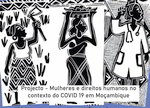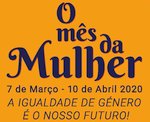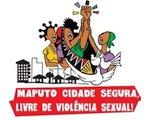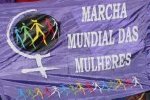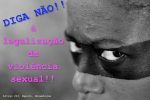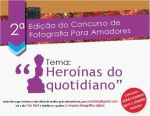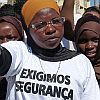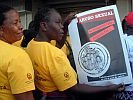“Mabuasuda”
A case of Fundamental Rights conflict
by Carlos Serra1
Published in: Outras Vozes, Suplemento do boletim n° 17, November 2006
We have been witnessing the appearance of a new musical style, product of the creative combination of a style genuinely Mozambican – the “marrabenta”, and an imported musical style – the “rap”. The result is really fantastic and has already been called by some the “Marrabenta – rap” style.
A new generation of young musicians distinguished itself with fame, boldness, engagement, dedication, courage and fundamentally intervention. Social critique emerged vigorously through the well-constructed, rhythmical and clearly original melodies.
This emergence occurred in a context characterised by a certain mediocrity in musical terms, the importation and literal copying of foreign models, the use and trivialization of more profound human feelings and, mainly, emptiness and the absence of any posture of social criticism. “Gpro Fam” and “Estaca Zero”, among others, were, in my modest understanding, and are up to now, the more expressive face of this new musical style.
Recently I had the opportunity to hear the music “Mabuasuda”, from the album with the same name, authored by singer Zico, who rapidly became an obligatory presence at the majority of television and radio channels, festive occasions, discos and bars of the country. The music is characterised by a rather contagious sound, a truly vibrant rhythm and a text that can easily be sung. The whole is really an admirably finished product, at least regarding the musical aspects.
However, having listened attentively to the respective text, and having subsequently asked support in the translation of a few expressions in local language, I became rather preoccupied.
Two negative aspects arise immediately from a reading of the text: on the one hand, the sexual objectification of women, and, on the other hand, the discrimination of other people – through the allusion to the category “albinos”. This fact led me to consult the Constitution of the Republic of Mozambique with the aim to make a legal-constitutional analysis of this music, without any pretension of uttering big truths, but only to contribute to a likely debate that could emerge. The result is the following:
To begin with, Zico’s intervention should be contextualized in the nature of the Mozambican State, as a Democratic Constitutional State, under article 3 of the Constitution, based on pluralism of expression and on respect for and guarantee of the fundamental rights and liberties of human being.
Under the Constitution, Zico exercises two fundamental rights: on the one hand, the right to freedom of expression, laid down in article 48, according to which this right comprises “the faculty to spread one’s own thought through all legal means”, which shall not be restricted by censorship; and, on the other hand, the right to freedom of cultural creation, more specifically in its artistic dimension, laid down in article 94.
However, this exercise calls into question a series of other articles of the same Constitution, originating a true situation of a collision of rights. Let us start with a conceptualisation through article 11, that establishes the fundamental objectives of the Mozambican State, which are, among others: “the defence and promotion of human rights and of the equality of citizens before the law”, and the “promotion of a society of pluralism, tolerance and a culture of peace”.
The use of the expression “even an albino” raises serious problems of discrimination, as it implies the insinuation of the albino woman as belonging to a kind of residual category of the female sex, but who, according to Zico, also serves as an object for the satisfaction of the caprices of a physical order.
Thus, this song calls into question the principle of universality and equality, laid down in article 35, according to which “all citizens are equal before the law, enjoy the same rights and are subject to the same duties, irrespective of colour, race, sex (…)”, among others factors referred to.
Having said this, taking into consideration that albinism reflects an individual’s incapacity to generate melanin, a substance responsible for giving colour to the skin, as well as for protecting it from ultraviolet radiation, thus constituting a form of deficiency, the song calls into question article 37, relative to bearers of deficiencies, who “fully enjoy the rights laid down in the Constitution and are subject to the same duties except the exercise or fulfilment of those duties for which, because of their deficiency, the are incapacitated”.
Then, Zico dos not comply with the provision of article 38, which stipulates the obligation of all citizens to respect the Constitution, as well as the contents of article 39, which determine that all acts aimed, among others, at “creating situations (…) of discrimination on the basis of colour, race, sex (…)” will be punished under the law.
It is also a matter of violation of the right of all Mozambican citizens who suffer from albinism to dignity and reputation, as individual rights protected by article 41 of the Constitution.
Zico also disrespects article 44, which establishes the duties of the citizen vis-à-vis their fellow-men, in the following terms: “all citizens have the duty to respect and esteem their fellow-men, without discrimination of any kind and to maintain relations with them that allow the promotion, protection and strengthening of respect, reciprocal tolerance and solidarity”.
The same can be said in relation to article 45, which defines a series of duties relative to the community, among which we point out paragraph d): “be devoted to, in his or her relations with the community the preservation of cultural values, a spirit of tolerance, dialogue and, in general, to contribute to civic advancement and education”.
Regarding the sexual objectification of women, in addition to some of the articles referred to above, we should also refer to article 36, according to which “men and women are equal before the law in all spheres of political, economic, social and cultural life”.
After having made reference to the constitutional articles that protect Zico (a total of three) and those that were called into question (a total of nine), I would like to emphasize that the exercise of a fundamental right shall not call into question the nucleus of other fundamental rights, with the risk of generating a situation of conflict susceptible of compromising the so desirable social harmony. It is not my intention, I want to stress, to cast doubt on the musical and artistic talent of Zico, which I consider worthy of mention. However, I feel obliged to call for attention to how and how much his message violates a series of principles of our Constitution.
At this moment Zico is a reference for many people. Any child dances and sings his music, particularly “Mabuasuda”. Many youths and adults also do. But very few of us have probably given due attention to the text and to all the possible negative consequences in the fields of discrimination of other people and of the sexual objectification of women. Tendencies in the sense of a mere uncommitted consumption or of a comfortable indifference should be avoided, and we should start to question everything that is susceptible of jeopardising the fundamental rights of any citizen.
We live more and more in the context of a crisis without precedents due to the deadly impact of HIV/AIDS, in which the campaigns done so far have produced very few results, in which the level of ignorance is still overwhelming, even in the more learned circles of society, and in which no way is found to change attitudes in the area of affective relations.
Meanwhile, a simple music invites us to “love all women”, making use of somewhat aggressive expressions and with a strong sexual connection, such as is the case of “take”, “catch” and “give”. All women serve for this purpose, “irrespective of their colour”, and are nicknamed “tasty”, “softy”, “sexy” and “charming”. Zico offers an exaltation of the mere sexual contact in prejudice of the establishment of a faithful and enduring relation. Women are reduced to the ephemerality of the moment, to the summit of short-lived satisfaction, and to merely external beauty. Thus he enters into contradiction with the message he intends to spread in other songs that are part of the same album and that deal with the HIV/AIDS theme.
It is in the order of the day to praise our Mozambican identity, which not only happens in relation to musical expressions, but also in the promotion of Mozambican products and services through the “Made in Mozambique” campaign. However, the praise of our Mozambican identity by means of musical expressions should be materialized with the preoccupation to contribute to civic advancement and education, as the Constitution itself stipulates.
At the centre of the issue is having an attitude in relation to the main problems that affect our society, namely: diseases, poverty, corruption, unemployment, criminality, indifference, ignorance, among others.
Finally, we should be more responsible for the society of which we are part, which necessarily implies respect for the fundamental rights recognised for all and any citizen by the Constitution of the Republic of Mozambique.
- Lawyer, teacher and researcher of the Legal and Judicial Training Centre.







 Information in English
Information in English